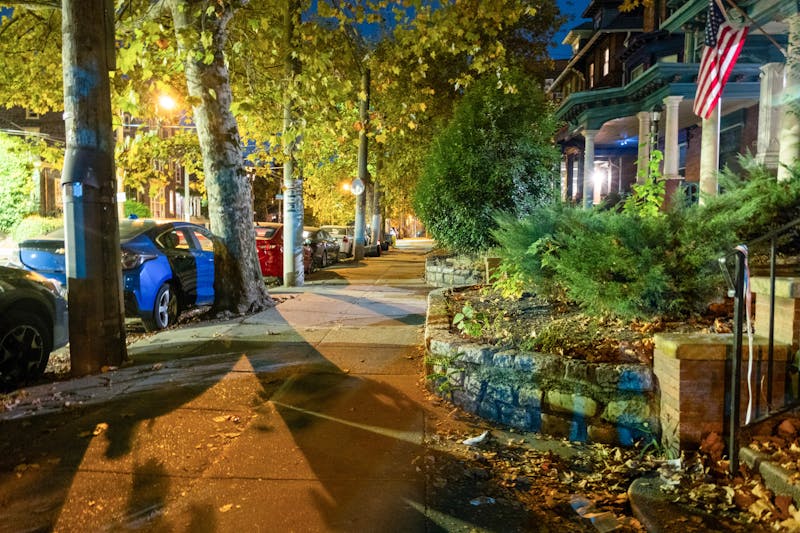
You've probably heard of Penn referred to as "America's first university." Although Harvard was the first college in America, Penn was the first institution to contain "more than one faculty," with the addition of the first medical school in 1765. But there is also another reason why we are America's first university. In the heat of the revolutionary war era, the College of Philadelphia was given a new charter and became the University of the State of Pennsylvania. Penn was the first (and probably shortest-lived) public university in America.
However, Penn's brief tenure as an officially public school wasn't simply an aberration. It was a manifestation of Penn's unique civic spirit that had been born of the 1749 proposal for an academy that would teach "those things that are likely to be most useful and most ornamental," written Benjamin Franklin, the same man who helped to give America "a republic, if you can keep it." Mindful of this tradition, we must question if we are a campus that is civically engaged and politically aware. Are we working to keep the republic? As the members of the Penn community welcome a new president to the University and prepare to vote on which person will occupy the White House, there couldn't be a better time to ask.
The answer is both yes and no. President Rodin leaves College Hall having endowed the university with a far greater sense of its role in the community. Penn is a model for local engagement and service learning. Our schools and centers lead research programs on the most pressing issues of the day. Many Penn alumni devote their lives to serving their communities. However, there is some disconnect between our devotion to the local community, our academic research, and the broader civic and policy issues that affect both. This can be seen in the case of our most basic obligation as Americans: voting.
According to the Center for Information and Research on Civic Learning and Engagement, 42 percent of 18 to 24-year-olds voted in 2000, compared to 70 percent of individuals over the age of 25. Additionally, participation of young voters has declined by 13 percentage points between 1972 and 2000. As much as one would like to believe that Penn students are different, there is little reason to believe that we are.
That said, there are many reasons why undergraduates should vote. The University's high levels of international students, federal financial aid, and research funding, among other factors, make Penn an institution that is particularly tied to governmental policies. Beyond the ideal of participatory democracy, students at Penn have quite a bit at stake in each election. Increasing voter turnout among students would, in addition to contributing to Penn's public mission, create a thousands-strong constituency whose voice would be better heard.
Fortunately, we possess information to guide our efforts. The Declare Yourself campaign, which brought an original copy of the Declaration of Independence to campus this spring, conducted a survey on attitudes towards voting. The survey data suggest a few approaches, which complement the suggestions of a recent Summer Pennsylvanian editorial, ("Gutmann should re-politicize Penn," SP, 7/1/04).
Make civic engagement a part of student life from the start. Target freshmen. It is critically important to register young voters soon after they become eligible. Of all registered voters age 25 to 29, 77 percent registered when they were age 18, and only twelve percent registered when they were over the age of 19. From the first day of orientation, new students must be made aware of Penn's civic mission and their potential contribution to this mission. This includes the placement of a voter registration card in every orientation packet and the communication of information about how and when to obtain absentee ballots, as well as ensuring that polls are located in an accessible and central location.
Identify and communicate critical issues to motivate students. Over 70 percent of young voters surveyed by Declare Yourself identified "voting on a particular issue" as a reason that young people register to vote. Although a healthy debate on the major "front page" issues is tremendously important, it is also worthwhile to direct attention (in a non-partisan manner, of course) towards the issues that directly affect the lives of undergrads. These include topics ranging from the distribution of federal funds for financial aid and research to the reauthorization of the Higher Education Act. Working to make issues of higher education policy relevant to students is likely to pay off in the form of higher turnout.
Provide a centralized and accessible source of voting information. Of all survey respondents, 58 percent stated that they would be likely to use a comprehensive, "all-in-one" Web site that provided information on campaign issues, candidates, voter registration, and voting. More than half of the respondents suggested that they would be more likely to vote if such a web site were made available during an election year. Penn has both the need and the resources for such an information source. Elections are complicated, and this coming one looks to be no exception. Providing an objective source of information on voter registration procedures and relevant issues would be a tremendous service to the Penn community.
"Re-politicizing" Penn is not going to be a simple or fast process. However, the 2004 election provides a concrete target towards which we may direct our efforts. Hopefully, we'll have some help from our first political scientist president.
Matthew Guilford serves as a student liaison to the Board of Trustees' External Affairs Committee and is a senior history and BBB major from West Warwick, R.I.
The Daily Pennsylvanian is an independent, student-run newspaper. Please consider making a donation to support the coverage that shapes the University. Your generosity ensures a future of strong journalism at Penn.
DonatePlease note All comments are eligible for publication in The Daily Pennsylvanian.







